Millets: solution to climate and food security challenges
…. Nkentani says the crop is not only resilience to harsh weather conditions, including drought, heatwaves, and heavy rainfall which makes it an excellent option for cultivation in climate-sensitive areas but can also help address food security challenges as they are nutritionally rich and provide a sustainable source of food.
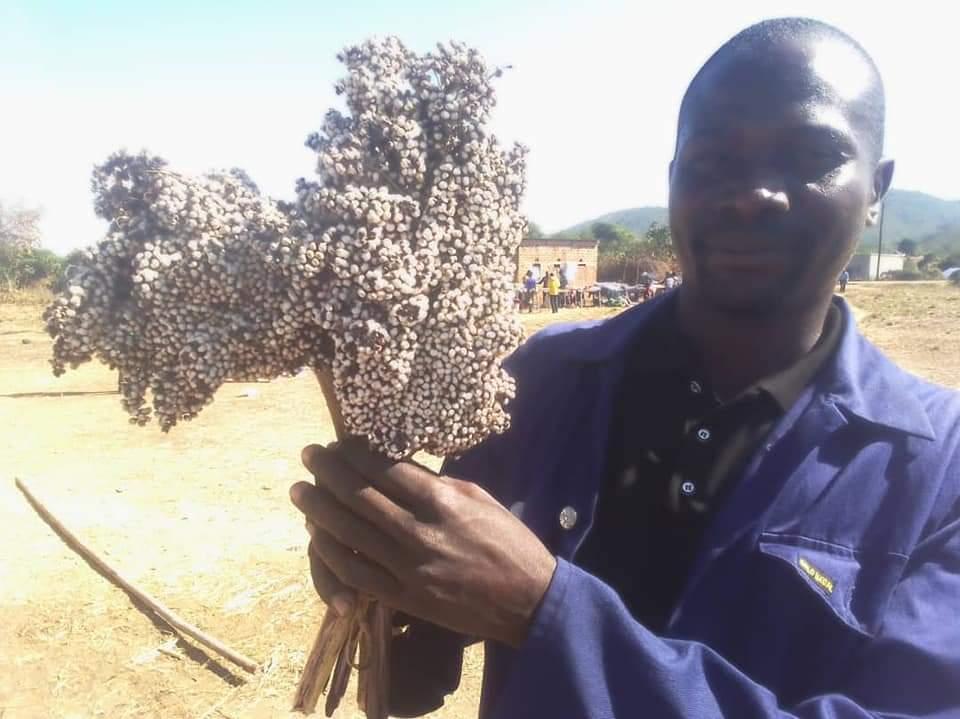
By Francis Maingaila
Lusaka, Zambia24 (31- 05 – 2023) – Vista Chimuka smallholder farmer in Chief Chipepo Chiefdom in Chirundu District had always struggled to make ends meet due to the unpredictability of weather patterns and lack of support from the government.
However, with the increasing popularity of millets as a resilient and nutritious crop, Vista saw an opportunity to improve her livelihood.
After attending a training program on millet production, Vista was convinced of its potential and began to incorporate it into her farming practices.
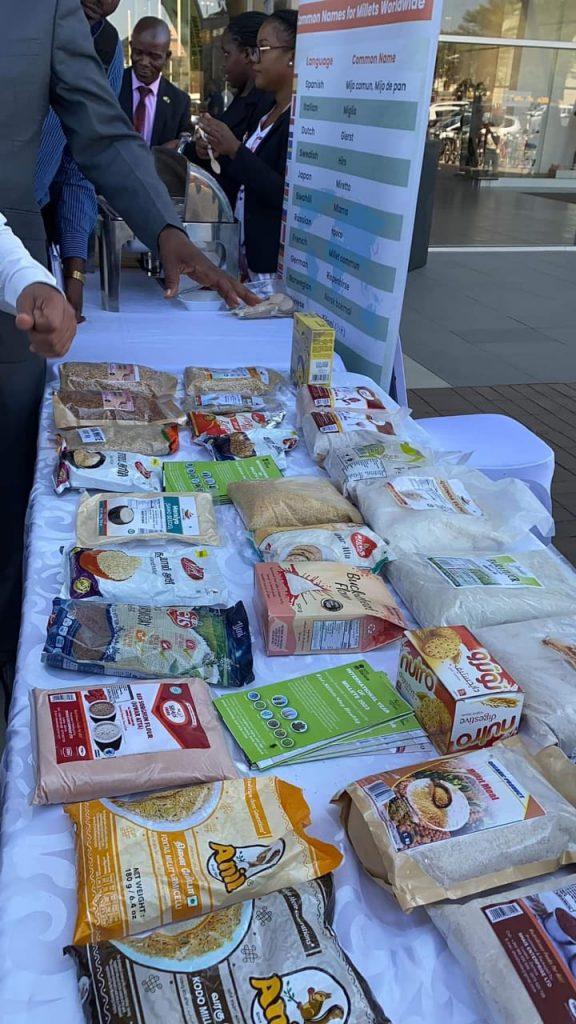
Vista sees the benefits of using millers for both nutrition and medicinal purposes. Chimuka emphasized the importance of millets especially during times of climate change.
Vista told journalists during the commemoration of the international day of millet that farmers to grow more millets to help mitigate food shortages in the country.
According to Vista, millets have a high nutritional value and can be used for medicinal purposes. He added that millets are not only good for human consumption but also for animals, making them an ideal crop for farmers.
He was delighted to discover that millets could withstand harsh weather conditions and required less water and fertilizer than other crops.
With the help of the government’s financial incentives and technical assistance, Vista expanded her millet production and started to explore value-addition opportunities.
He learned how to process millets into flour, porridge, and other products that could be sold at local markets and beyond.
Vista wasn’t alone in her efforts to promote the cultivation and consumption of millets.
Vista advised fellow With its high nutritional value and adaptability to different climates, millets have the potential to provide a sustainable source of food not just for Zambia but also for many other countries facing similar challenges.
Vista urged farmers to invest in the crop and take advantage of its numerous benefits, both for their own livelihoods and for the wider community.
Indian High Commissioner to Zambia, HE Ashok Kumar, said across Zambia, farmers, policymakers, researchers, and consumers were recognizing the immense potential of this crop.
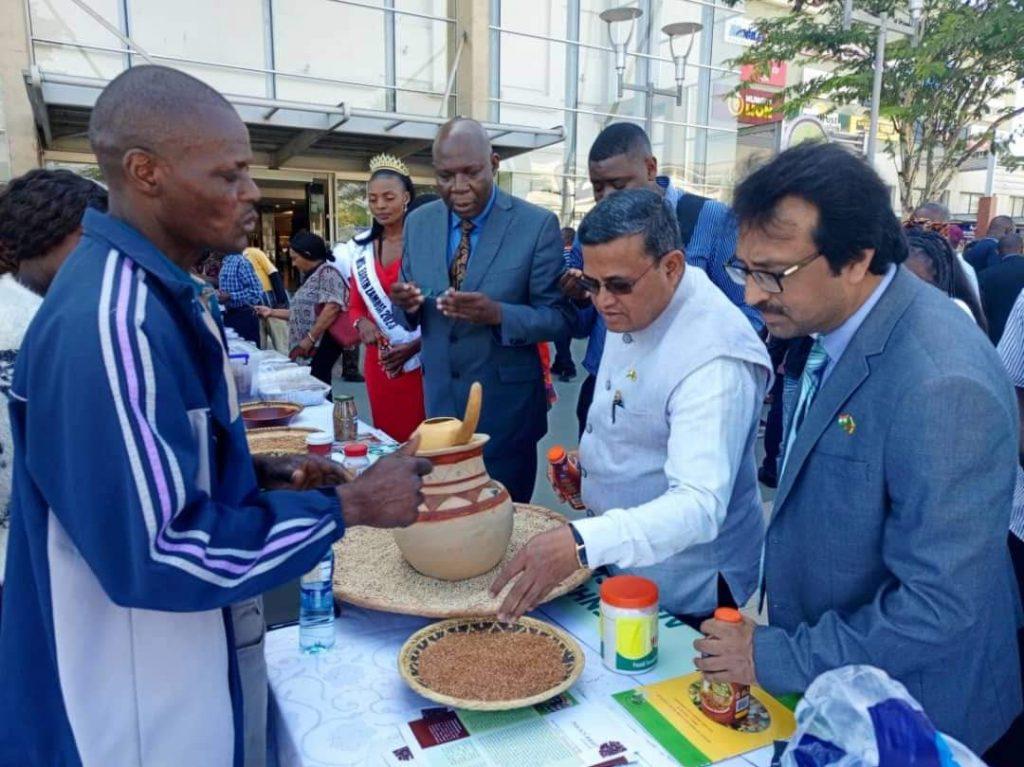
Kumar said during the commemoration of the international day of millet that legislative action should be taken to promote millet cultivation, and private sector investments were made to facilitate access to credit, training, and new technologies.
Schools and hospitals can put millets on their menus, while chefs and food industry influencers incorporated this versatile crop into their recipes.
Children should be taught about the nutritional benefits of millets from a young age and given the opportunity to taste them on their school menus.
He urged academic institutions to dedicate resources to researching millets and developing sustainable cultivation methods, while smallholders and family farmers received support and better market connections.
Henexpressed the need to strengthen millet farming policies in Zambia due to the crop’s numerous benefits, including its high nutritional value and ability to withstand harsh weather conditions.
He said millet is a highly resilient crop that can help tackle climate change, malnutrition, and environmental degradation.
He urged the Zambian government to adopt policies that promote the production and consumption of millet, citing India’s success in this area.
Kumar noted that India has the world’s largest biodiversity of millets and produces 80% of Asia’s millet crop, with an annual production of approximately 16 million tonnes.
He added that India has been able to achieve this through policies such as the National Food Security Mission and One District One Product initiative, which prioritize the production and marketing of millets.
In the Zambian context, Kumar emphasized the need to address the drudgery in the primary processing of millets, which has led to a decrease in consumption.
He suggested that the government should develop machinery to improve dehulling without causing a loss of nutritional content and link small and marginal millet farmers to online marketing platforms to enhance their bargaining power in the market.
The High Commissioner also urged the Zambian government to promote the adoption of millet farming practices through incentives such as price support and value addition, similar to what is being done in India.
By doing so, he noted that Zambia could significantly boost its millet production and contribute to the country’s food security and economic development.
Kumar emphasized the need to strengthen millet farming policies and institutional interventions that are market-oriented yet inclusive to win both rural and urban Zambian consumers back to a healthy millet diet.
Kumar, called for the recognition of millets in the food value chain as having potential to be a sustainable and profitable crop.
He said that millets are an ancient grain that has been cultivated for generations and has been part of the food system and were also a staple for many Indians, especially in rural areas, due to their nutritional value and affordability.
He explained that millets were a low-maintenance crop that could grow in poor soil and harsh weather conditions.
Kumar revealed that India had proposed to the United Nations to declare the year 2023 as the International Year of Millets, and the proposal was accepted.
He emphasised that India is ready to support Zambia in its quest for millet production and further popularisation.
He revealed that the Indian Institute of Millet Research had offered to share technology and set up facilitation centres in Zambia to help farmers take advantage of the crop’s potential.
“We want to make millets a profitable crop for farmers. We need to educate people on its nutritional benefits,” he said.
The International Year of Millets 2023 was a significant milestone in promoting the cultivation and consumption of this crop, contributing to the UN 2030 Agenda for sustainable development.
The ongoing #MyFoodIsAfrican campaign continued to highlight the importance of promoting diverse local crop varieties.
According to Mutinta Nketani, National Coordinator of the Zambia Alliance for Agrobiodiversity (ZAAB), finger millet is an important crop for farmers, particularly in Zambia where it is considered a traditional food.
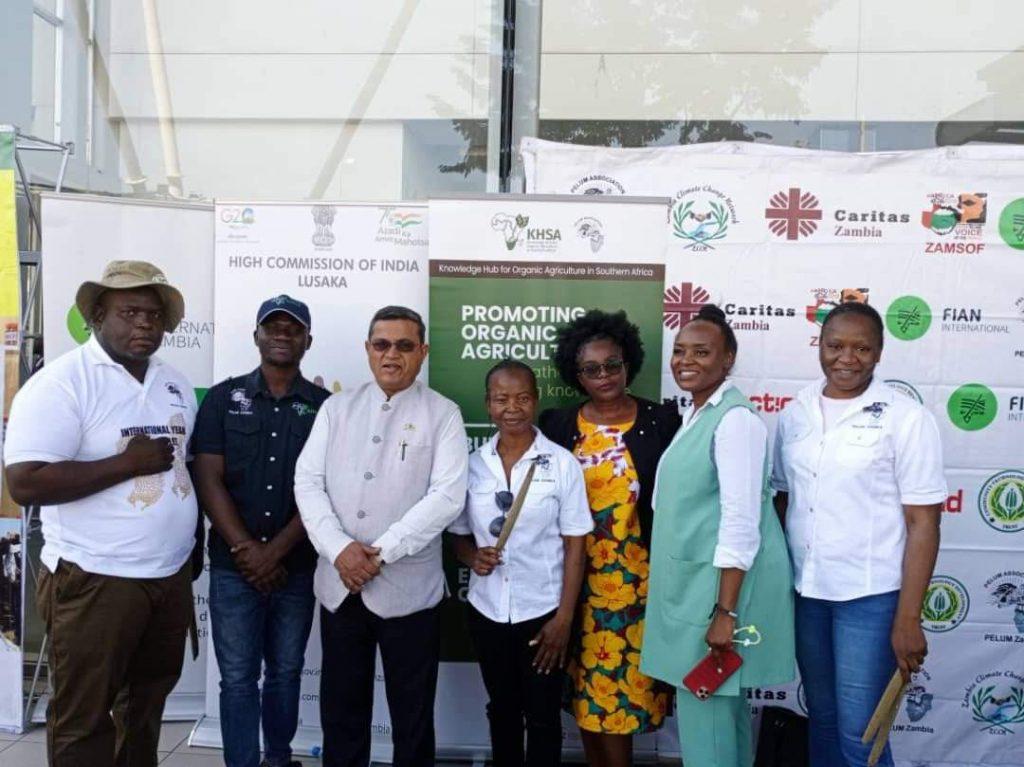
She noted that finger millet is a highly nutritious crop that is rich in iron, calcium, and other micronutrients that are important for human health.
Nkentani said the crop is not only resilience to harsh weather conditions, including drought, heatwaves, and heavy rainfall which makes it an excellent option for cultivation in climate-sensitive areas but can also help address food security challenges as they are nutritionally rich and provide a sustainable source of food.
However, despite its nutritional value, finger millet production has been declining in Zambia and other African countries due to a lack of infrastructure, knowledge, and support for small-scale farmers.
Nketani explained that farmers need better access to markets, storage facilities, and machinery to make the cultivation and harvesting of finger millet more efficient.
To address these challenges, ZAAB is working to promote the conservation and sustainable use of agrobiodiversity in Zambia, including the promotion of finger millet as a staple food crop.
Nketani notes that ZAAB is working with farmers to improve their seed saving and exchange practices, as well as providing training in organic farming methods and crop diversification.
Nketani stresses the importance of preserving indigenous crops like finger millet as a means to improve food security and nutrition for rural communities in Africa.
By promoting sustainable farming practices and supporting small-scale farmers, organizations like ZAAB are working towards a more resilient and equitable food system for all.
And Nutritionist Matthews Mhuru, believes that crop diversification is an essential measure to promote food security and environmental protection. He noted that in some areas, some vital crops for food and nutrition have disappeared and are no longer being grown.
He then highlighted the importance of certain crops and encouraged the audience to pay attention to import requirements to produce them, as these crops are excellent alternatives to drugs and are highly nutritious.
Mhuru regretted that the inequality present in the production process is due to a highly controlled food system and developer system.
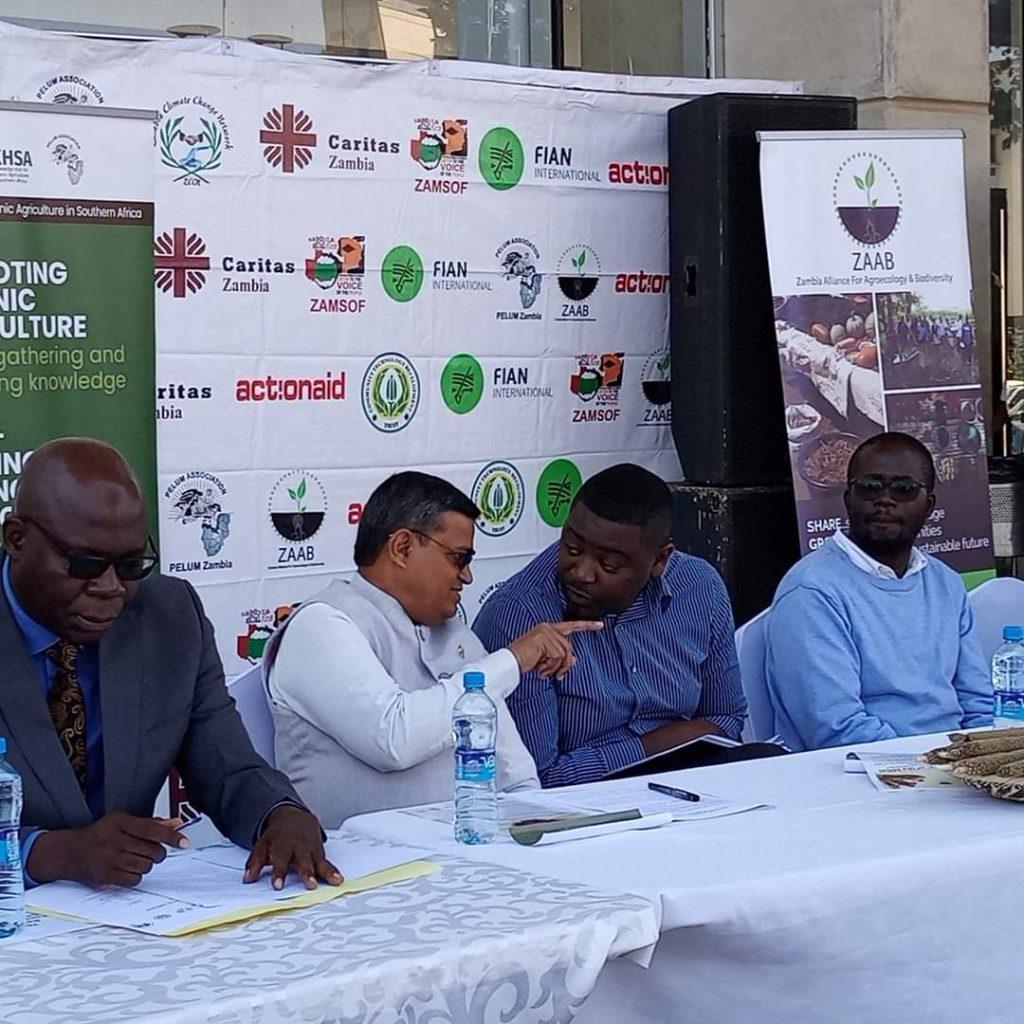
He called for breaking down these barriers and ensuring that everyone has access to these crops.
Mhuru also spoke about a project called “me sex”, which he believes will be vital to serve global problems like poverty and informational awareness. He called for investors to play a crucial role in ending these human threats and “it’s time for action.”
Mhuru also called for more investment for small market enterprises to have access to finance for more value addition to millets.
He stated the need for policy support to ensure that enough crops are grown to meet demand. Mhuru urged the people of Zambia to take a keen interest in these world crops and appreciate the importance of crop diversity and its role in their food and nutrition security.
Zambia Agriculture Research Institute (ZARI) Executive Director, Ivor Mukuka urged the media and society to work together as part of the ongoing campaign to promote the importance of millets in food security and nutrition.
Speaking at an event to commemorate the International Year of Millets campaign, Mukuka explained that millets have tremendous potential for increasing food security while also being environmentally sustainable.
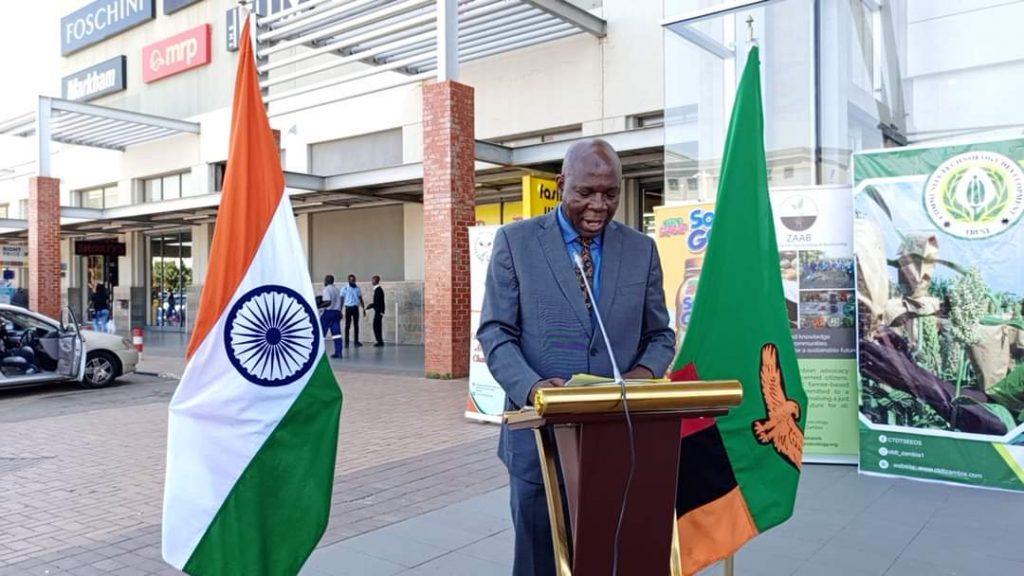
Mukuka highlighted the need to address challenges related to biodiversity to improve the health and nutrition status of people.
As part of this effort, the government has included millets in its instant program to address malnutrition.
According to Mukuka, the low productivity of millets has been a significant challenge for small-scale farmers.
He added that the government’s public awareness campaign, which is organized by Civil Society Organizations, aims to encourage more institutions to produce millet-based products.
The ZARI Director ended his remarks by launching the commemoration of the 2023 International Year of Millets campaign.
He expressed hope that the campaign would increase awareness of the potential of millets and promote nutrition and sustainability.
The Year of Millets Commemoration session held at Levy Junction Mall was attended by several organizations including ActionAid, Zambia Zamsof FIAN International Zambia, Caritas Zambia, Zambia Alliance for Agroecology and Biodiversity, Zambia Rural Women’s Assembly, Zambia Climate Change Network, SEPA Zambia, Kachere Development Programme, Rosa-Luxemburg-Stiftung, PELUM Association Regional Secretariat, PELUM Swaziland, Pelum Uganda, Pelum Kenya, Pelum Association Regional Desk, SAOSO Community Technology Development Trust – Zambia.
